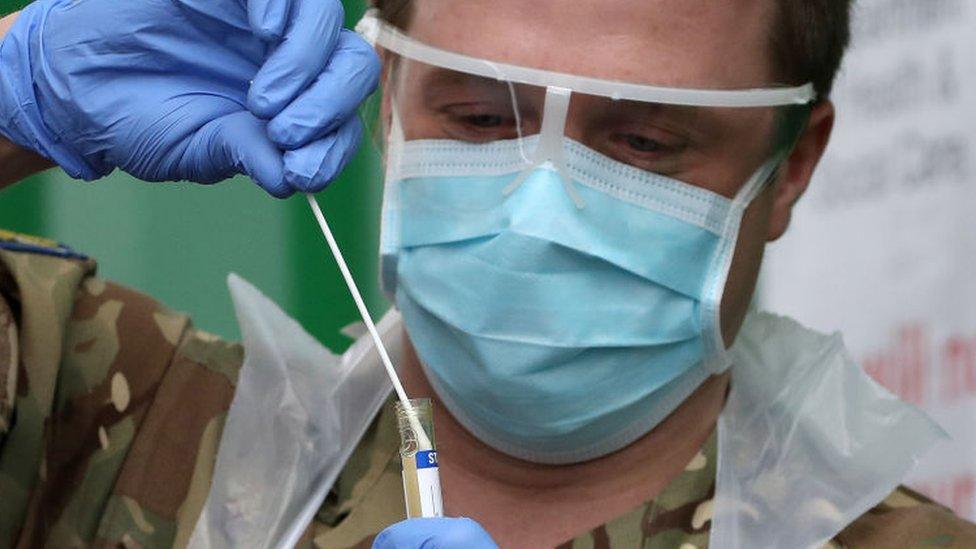Will Scotland have its own coronavirus app?
- Published
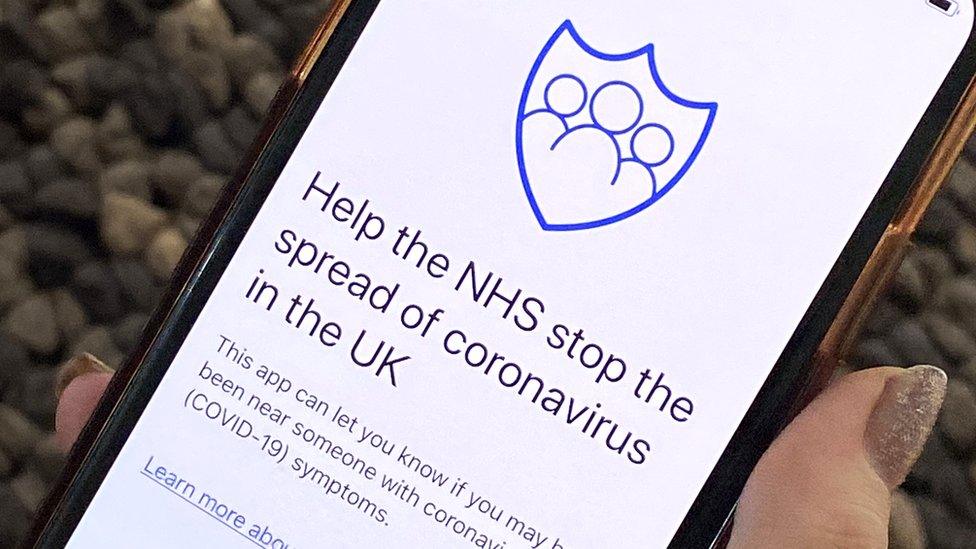
The UK government is trialling an app to help warn people if they come into contact with someone with coronavirus. The Scottish government is also developing digital tools to run a "test, trace, isolate" system - what are these, and how will they work together?
How does contact tracing work?
Let's be clear that, to start with, the bulk of the "test, trace, isolate" (TTI) system being developed in Scotland is going to rely on "old-fashioned" contact tracing.
When someone flags up that they are feeling the symptoms of coronavirus, they should go into isolation and a test will be arranged for them.
While the patient is waiting for the results to come back, a specialist contact tracer will be in touch with them, generally over the phone. The contact tracer will try to pin down where the patient has been over the past 48 hours, and who they've been in close proximity to - so within two metres for more than 15 minutes.
If the test comes back negative, as the government's clinical director Prof Jason Leitch puts it, "all bets are off".
But if a positive result does come back, the contact tracer will ring around the people the patient had been in close contact with and ask them to go into self-isolation for 14 days.
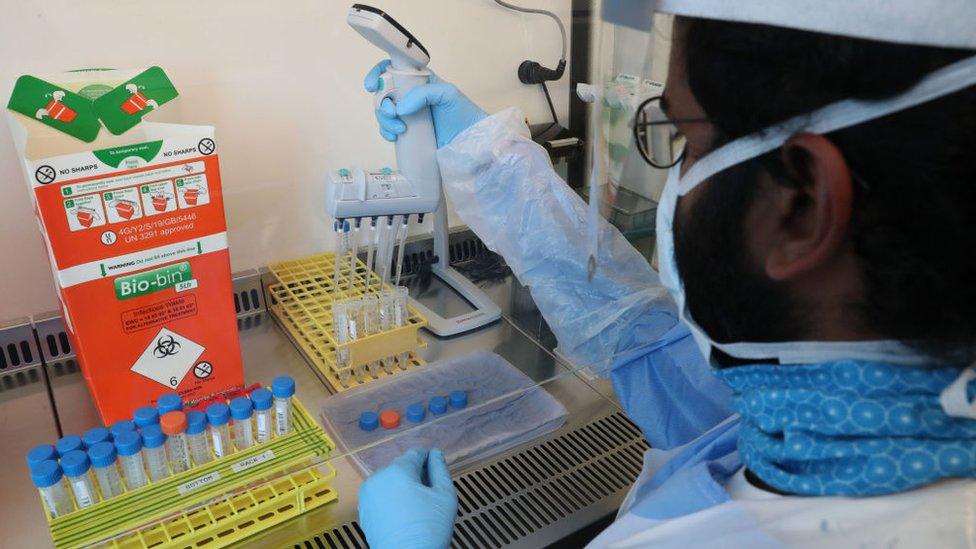
Virus tests need to be ramped up still further to support a TTI approach
What are the plans for a digital approach?
Contact tracing is not a new thing - NHS boards and Public Health Scotland have plenty of experience in doing this with infections in the past.
But the current plan is to do it on an utterly unprecedented scale, right across the country.
To make this sustainable, the Scottish government wants to automate the process as much as possible, to take some pressure off the specialist contact tracing staff - an extra 2,000 of whom are being taken on.
The most basic approach to this is a "secure web-based tool for the NHS in Scotland" - basically an online form which people can access via a computer or smartphone.
This could take the place of some of the phone calls. People can fill in where they've been and who they've spoken to - names and phone numbers - and the information is sent to the contact tracers digitally, cutting out one step of the process for them.
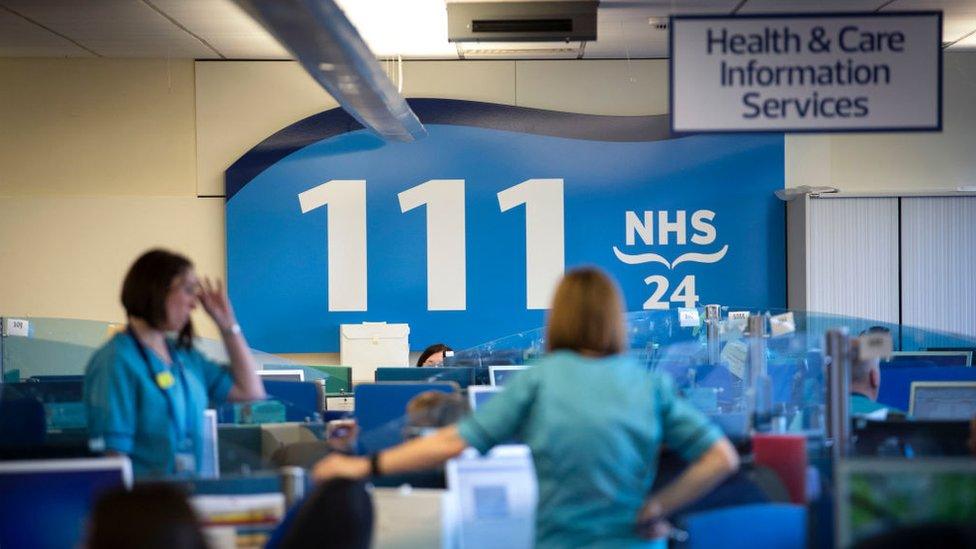
Normal NHS call centres are going to carry much of the burden of contact tracing
What about the UK government app?
The app the UK government is developing - and trialling on the Isle of Wight - takes a slightly different approach.
The app can provide information to users, and help them diagnose themselves if they are feeling symptoms.
However the core purpose is to use Bluetooth technology, which keeps an eye out for other users of the app near to the user. If one of those people then comes down with the virus, the app can notify anyone who came into close contact with them.
This is particularly useful for tracing strangers who you may have come into contact with - for example on public transport - which traditional contact tracing cannot cover.
The downside of this approach is that it needs huge buy-in from the public to be effective. Nicola Sturgeon has suggested that up to 60% of people might need to download it - a huge number, particularly given not everyone has a smartphone.
And the group which is least likely to have a smartphone is also the group most at risk from the virus - the elderly.
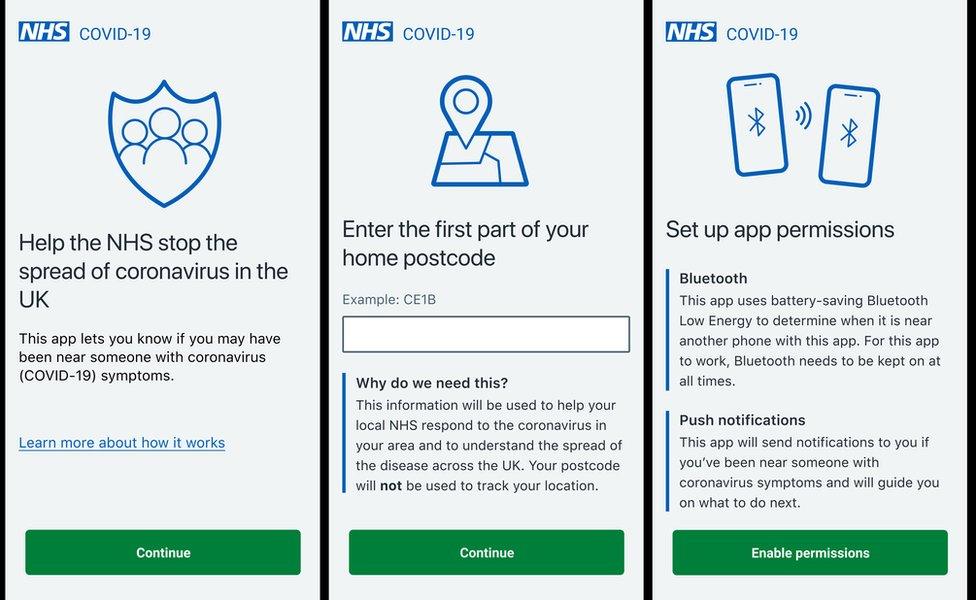
Users will be asked to enter the first part of their postcode but not their name or other personal details
Are these tools going to work together?
The answer to that isn't entirely clear yet. Hopefully they will, but there is a lot of work to be done first.
Prof Leitch says the Scottish government is looking at the UK app as potentially an extra "layer" on top of its own systems - the old-fashioned ring-round approach, and the digital form-filling.
Scottish officials want to be more involved in the development of the UK app, to make sure the data gathered will slot smoothly into the system north of the border.
They also want assurances about how it will be ensured the public have confidence in the technology and the use of their data - something that will be critical if enough people are going to buy in.
The plan for the UK app is that it will not require users to enter too many personal details - but people will need to be convinced it is secure and that they cannot be easily identified either by the government or by hackers.
Prof Leitch said: "I'll download it myself once I'm confident that it works, the security is good and it feeds into our Scottish systems. We don't know that yet. Nobody can know that yet because it's just been developed."
- Published26 May 2020
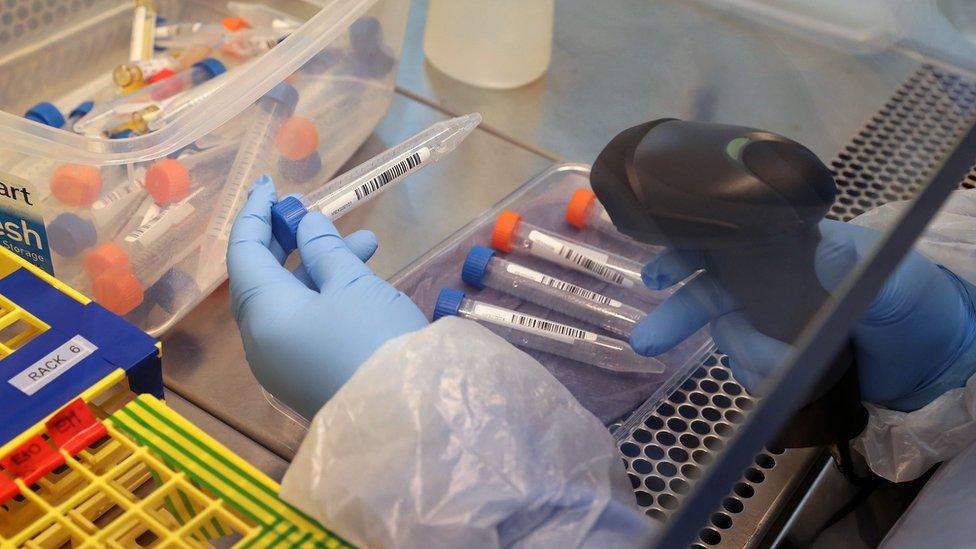
- Published4 May 2020
